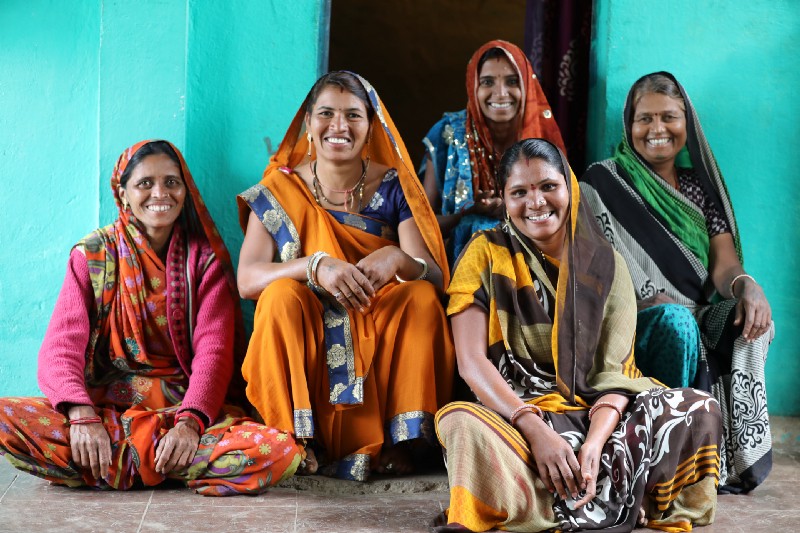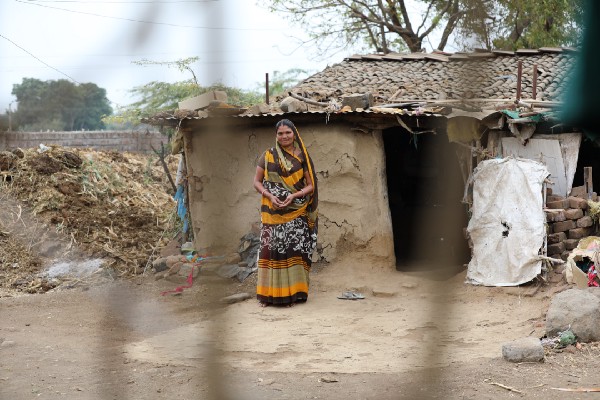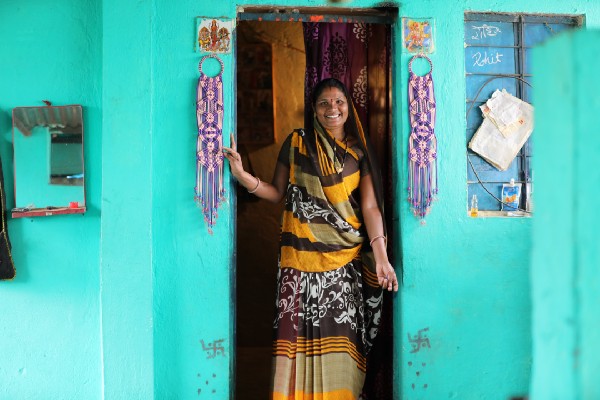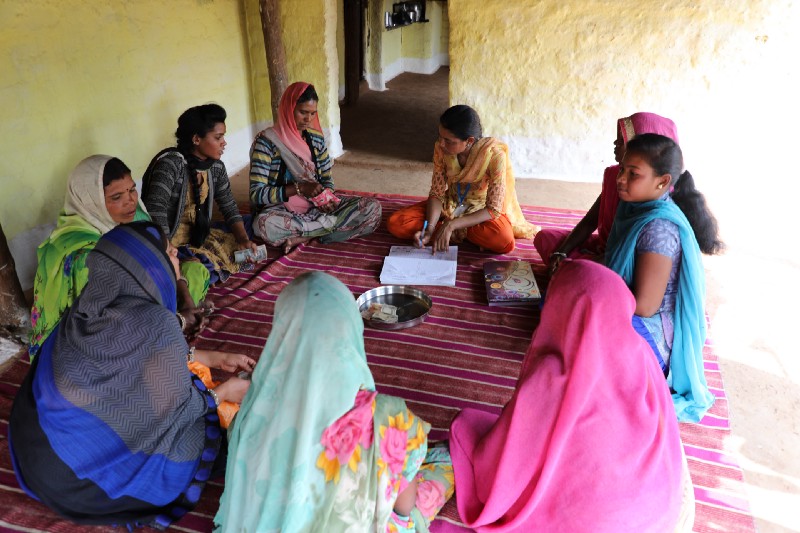This is the story of Sakubai, from rural Dhar in Madhya Pradesh, India. This is also the story of how rural women like her have found their calling thanks to Self Help Groups.
Sakubai and her family live in remote Dhar district, Madhya Pradesh. Almost 2000km away lives Muhammad Yunus in Bangladesh. The two don’t know each other, but an important word or rather a phrase connects them both — ‘Self Help Groups’ (SHGs).
When Muhammad Yunus developed the concept of SHGs and micro-finance in the late 1970s, the concept was an unknown one. Today rural India is experiencing a revolution for more than two decades with the SHG concept. The concept involves lending money to the poorest of the poor, who are shunned by banks.
Sakubai’s story is one that moves and inspires; rising from abject poverty to become the confident owner of three businesses. The magical three words — Self Help Group is what delivered Sakubai.

Sakubai (Front sitting) with four of her SHG members. These women from Dhar, Madhya Pradesh have changed their lives.
Before she joined Hand in Hand India’s SHG, Sakubai and her family lived in a one-room home, with no income other than a paltry one from her husband’s job as a cook. Her two children could not go to school, as she couldn’t afford their INR 60 fees. If any family member visited, she would have to run shamefacedly to her neighbours for tea and sugar. Despite being the owners of a 2-acre land, the family lived a hand-to-mouth existence.
The vicious cycle of poverty was the case of more than 19 lakh women such as Sakubai across the states of Tamil Nadu, Rajasthan, Madhya Pradesh, Maharashtra, to name a few.
When Hand in Hand India (HiH India) sowed the seeds of the SHG concept in these states, rural women rose up to their status of change-makers. Today, there are more than 1.5 lakh SHGs that have been formed with Hand in Hand India’s help across India. The women are given training in group management, book-keeping, financial and functional literacy, business development and enterprise creation. To support them further, HiH India provides them with credit to start enterprises.
So, how does being part of an SHG help Sakubai and other women?
When she came to know that a small loan could help her rise out of her situation, Sakubai was elated.
In 2014, she along with 10 other women from her village took the first step towards financial independence by forming a SHG with HiH India’s guidance. Her life has taken a massive 360-degree turn since then.
These are five ways SHG’s have changed the lives of rural women such as Sakubai:
1. Sakubai became aware of her earning power: As Sakubai moved beyond her small one-room home, she gained awareness about her rights and choices as a woman and a citizen of the country. She realised that women too can step out of their homes and contribute an income.
SHG meetings also give the women ideas on improving the quality of their lives and social evils like dowry, child marriage and alcoholism.


Sakubai’s older home was in a dilapidated state before she joined the SHG movement. She is now proud of her new home (right)
2. Sakubai understood money: The success of a SHG is dependent on the group’s savings and finance management. Sakubai is the leader of her 20 member SHG. With their mutual savings and small loans, all of them started small ventures. Sakubai’s first was a petty shop in her own house with a loan. Two more loans later she was running a dairy business and a tailoring unit too. Five years later, she is debt free and running successful businesses.

One of Sakubai’s three businesses — a grocery shop that she runs with confidence.
3. Sakubai is a leader now: She oozes confidence and good cheer as she speaks. Being the leader of her SHG has given her a boost in confidence. She now knows that she can now manage people and money, also take important decisions. Her status in the community has gone up and people now look up to her.
SHGs have been the launch pad for many a well known community leader.
4. Bringing together a community: SHG meetings involve not just discussing their group finances. The women also discuss their mutual problems and find solutions. If there is a well that needs to be dug for their water issues, the group moves the local body to do so. The group, therefore, brings awareness to the community and also takes part in the development of the village.

An SHG meeting in progress. Women are taught financial independence.
5. Peer support: The women of the SHG look up to Sakubai not just as the leader, but also as a knowledgeable friend. She helps them out when someone falls sick or needs babysitting support. Mutually the women watch each other’s back and provide support.
Sakubai’s story like many others, promises a ‘happily-ever-after’ ending. She is the able owner of three different businesses, has expanded her one-room home and even has a separate courtyard for SHG meetings. She and her husband have got their farmland back and sell veggies too. Her children attend a public school nearby.
When we told Sakubai about who Muhammud Yunus was and that he won a Nobel Peace prize in 2006, she had a broad smile. “I am at peace too”, she says.






